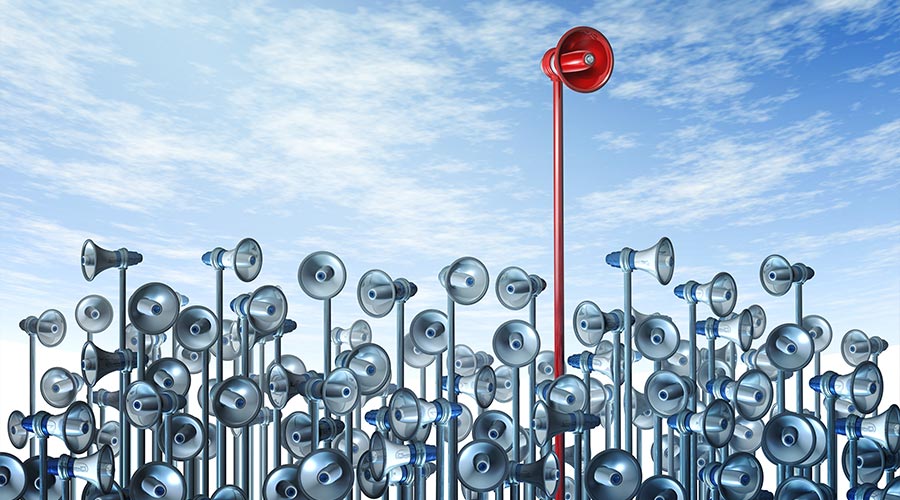
Anyone who has spent enough time in the commercial cleaning industry knows how invaluable it is to be adaptable. New technologies constantly emerge that promise to improve efficiency, yet implementation may create new challenges. Supply chain struggles strain inventory, requiring outside-the-box thinking to get shipments delivered on time. The examples are endless, but the theme remains constant: put in the effort to adapt and meet expectations, regardless of circumstance or difficulty.
For distributors, the topic of customer service is no different. There are obvious traits of a strong customer service program — such as responsiveness and following through on promises to end users — but in an industry full of rising threats (such as Amazon and other large-scale e-tailers) distributors will need to get more creative, stay ahead of the curve, and prove their unique value to an often-fickle customer base. Succeeding comes down to how well that value can be explained and having a reliable system in place to ensure optimized customer service comes to fruition.
Proving Value
From product knowledge to ensuring irresponsible purchases aren’t made, the value that a distributor can offer over e-tail competitors — or simply other distributors that aren’t keeping up with the curve — can be significant. Portraying that value, however, is often where the challenge lies.
If customers aren’t aware of what they are missing out on in terms of service from a reputable distributor, they’re more likely to simply chase the lowest price, notes Charles Moody, founder of Solutex, Sterling, Virginia. Solutex communicates its value by explaining to the customer what products they specialize in and why. As a smaller-scale distributor, they may not offer a one-stop shopping experience, but they offset that with product knowledge and in-depth consulting on products and services.
“A huge aspect of customer service is assigning the right product when questions arise. It's great when the folks answering the phones have a little bit of product knowledge, and it's easier to have product knowledge if a team is well-trained in a specific industry,” says Moody. “The alternative is an Amazon page where customers can read reviews, but there are also so many other items on that bottom layer that create confusion. And then customers are thinking, ‘wait, which one should I pick?’ They may end up buying a five-gallon pail of a product when only one gallon was needed.”
Understanding not just the products themselves, but which products fit the needs of a customer is a process that takes due diligence, asking questions about the customer’s facility, and keeping that dialogue consistent in case it needs to change. Since other distributors or competing e-tailers often sell many of the same products, Phil Carrizales director of Hygiene and Facilities Solutions for Acme Paper and Supply Company, Savage, Maryland, says learning the unique factors customers deal with is often pivotal, and the extra effort doesn’t go unnoticed.
Understanding the needs and problems of end users also helps to avoid the mistake of lumping customers into categories based on facility type, quantity of purchasing, and other baseline factors. While it could be an easy trap to fall into, especially for larger distributors, it does take away a key opportunity for distributors to differentiate themselves.
“A strong customer service program builds a trusting relationship between the customer and across all functions within the company,” says Carrizales. “The relationship starts with the salesperson and continues with the customer service representative all the way to the driver delivering the product.”
Bill Griffin, CEO of Cleaning Consultant Services, Inc., Seattle, concurs, noting the necessity of developing customer relationships to thrive. Most end users are keenly aware of the number of purchasing options at their disposal, and with that leverage comes a healthy dose of cynicism if they feel a genuine effort isn’t being made to meet their needs.
Distributors that can establish the strongest connections with customers are the ones who prioritize the issues of the end users, and not the business-related needs of the distributor itself. Doing so takes effort to understand the problems the customer is encountering and exploring sometimes unconventional ways to help. This provides a clearer path to pricing, tools that can free up workloads, and similar solutions.
“Buying cleaning supplies generally does not keep most people awake at night. What keeps them awake these days are issues including, ‘How am I going retain and train my people?’ ‘How do I keep my costs in line?’,” explains Griffin. “If we want strong customer service, we have to prioritize what the customer needs and wants, not what we think we should be doing.”
Factor in the reality that e-tailers such as Amazon can typically provide lower prices on products, and it leaves minimal room for error by conventional distributors when it comes to the quality and timeliness of customer interactions.
“As a distributor, if you don’t have strong customer service, it’s basically akin to a front wheel not functioning properly,” says Griffin. “If the relationship with a customer doesn’t get off on the right foot, then somebody else will likely take that business away.”
Much like negative momentum can quickly gain steam, the same goes for orchestrating a good start. A well-executed customer interaction that starts with the salesperson can reverberate throughout the entire process, from delivery to implementation. When a customer praises the efforts of a distributor, it can provide the morale and motivation to continue to take those extra steps that stand out.
“Happy customers can and do influence the workplace environment at the distributor as well,” says Carrizales. “Positive customer interactions create positive attitudes, which in turn help make the team more passionate about what they do.”
How to Maintain a Quality Customer Service Program

 Celebrating BSCAI's 60th Anniversary eBook
Celebrating BSCAI's 60th Anniversary eBook The Down and Dirty on Cleaning in Virus Season
The Down and Dirty on Cleaning in Virus Season How Surfactant Use is Expanding in Commercial Cleaning
How Surfactant Use is Expanding in Commercial Cleaning